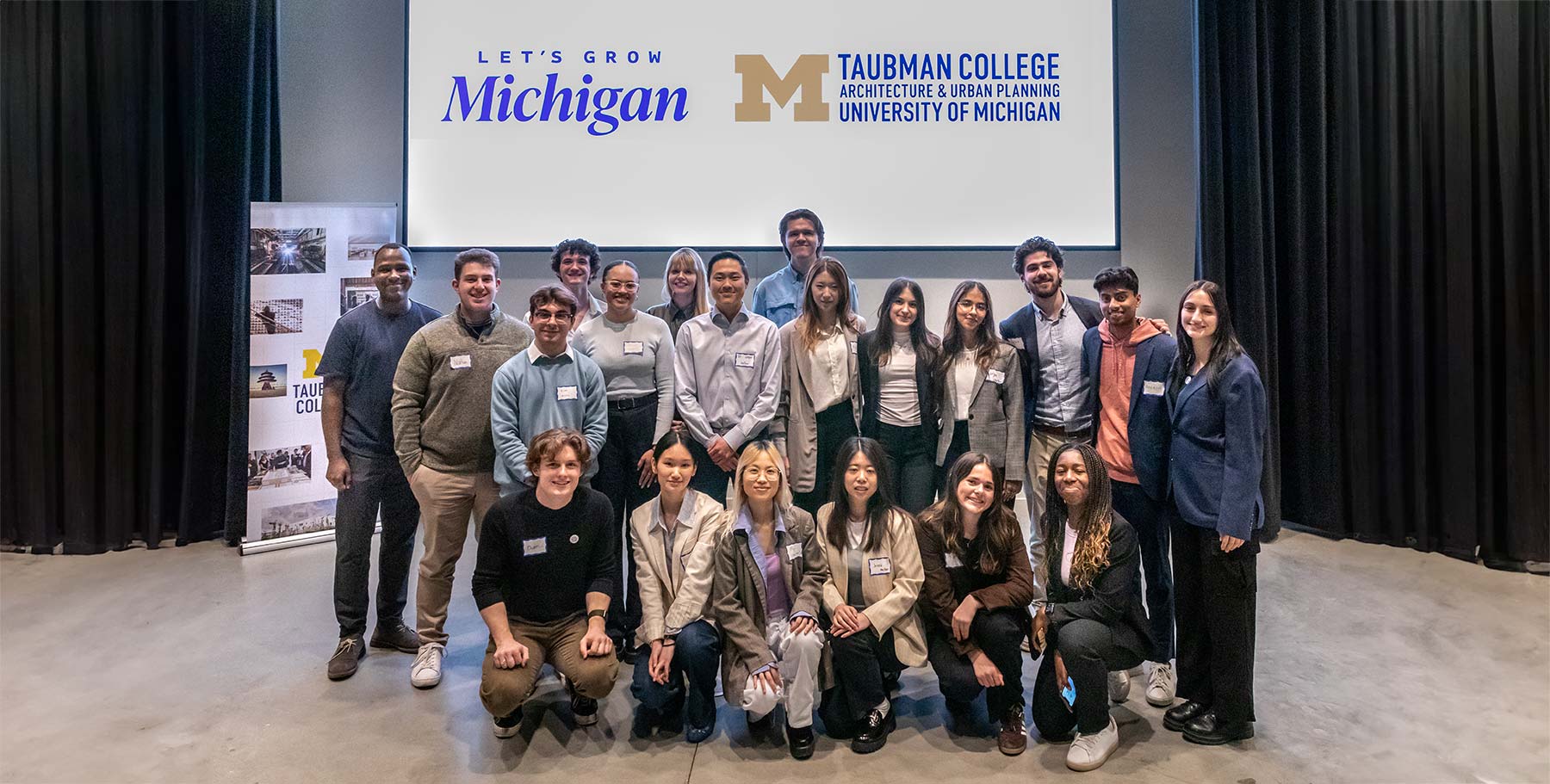Taubman College Professor of Urban and Regional Planning Joe Grengs and Associate Professor of Architecture Sean Ahlquist are members of two project teams recognized with Graham Sustainability Institute Catalyst Grants.
Since 2017, the University of Michigan’s Graham Sustainability Institute has provided over thirty sustainability catalyst grants to support small-scale, collaborative, interdisciplinary sustainability research. Four newly awarded sustainability catalyst grants engage researchers from 11 units piloting innovative methodologies to bolster climate resilience and sustainability. Each of the four featured research teams will receive $10,000.
Grengs is a co-investigator on A Road to Equity: Mitigating Bias in Transportation Infrastructure Planning. Decision-makers will need access to accurate usage data to prevent unnecessary road expansions and other misguided investments in infrastructure. Working with the Southeast Michigan Council of Governments (SEMCOG) and the Michigan Department of Transportation (MDOT), this research team will analyze the biases in transportation survey data that underrepresent people of color and those with low incomes and propose alternative methodologies. Focusing on the metro Detroit area, researchers will conduct a quantitative investigation into national and statewide transportation household survey biases and comprehensively compare sampling methods, instrument design, and post-processing corrections. By systematically addressing biases in transportation data, the researchers aim to improve the accuracy of information used in infrastructure planning beyond Southeast Michigan.
Project team: Atiyya Shaw, PI (Civil and Environmental Engineering); Joe Grengs, Co-I (Urban and Regional Planning); Sunghee Lee, Co-I (Institute for Social Research)
Ahlquist is a co-investigator on Threads of Change: Using Smart Labels to Improve Textile Recycling. Textile waste is among the fastest-growing waste streams due to missing or erroneous labels, one of the main obstacles to large-scale recycling. To combat this issue, the researchers propose an integrated textile labeling system that provides accurate data on fiber content, dyes, and chemicals. This project ensures seamless, user-friendly information transfer from yarn and fabric manufacture to an item’s end-of-use by incorporating direct input and leveraging the insights of the team’s industrial partner, Patagonia. Key objectives include modifying fibers to use industry-relevant and recyclable materials, integrating them into knitted fabrics, and demonstrating low-cost, handheld readers for efficient identification. The shift to chemically recyclable materials eliminates the need for manual label removal, while the integration into knitted fabrics aligns with the preferences of many clothing manufacturers.
Project team: Brian Iezzi (Parkdale Mills, Inc.), Max Shtein, PI (Materials Science and Engineering); Sean Ahlquist, Co-I (Architecture); Alanson Sample, Co-I (Electrical Engineering and Computer Science)





